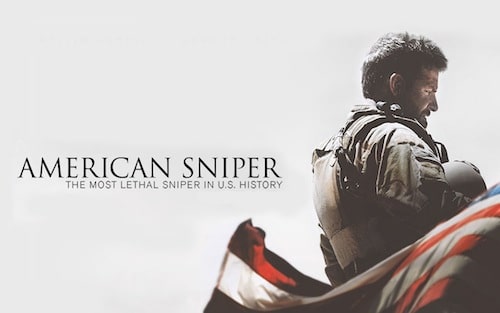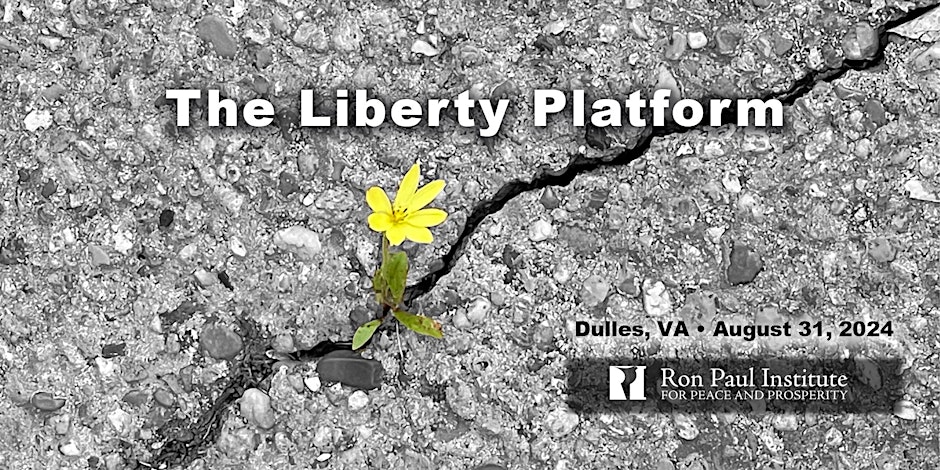Last January the movie American Sniper was breaking box-office records and generating a national debate over the nature of war and how the movie depicts war. The movie revolved around Chris Kyle, a real-life US soldier who had four tours in Iraq as a sniper and, in the process, set a record for the number of people killed by a US sniper.
The Left criticized the movie for glorifying war and for celebrating Kyle’s heroics. Clint Eastwood, who directed the movie and who is a conservative, responded that the movie made “the biggest anti-war statement any film” can make.
Both the Left and the Right, however, miss the central issue with respect to Iraq, one that I believe is the principal reason that Kyle and so many other American troops came back from the war psychologically disturbed: In this conflict, the United States was the aggressor nation and Iraq was the defending nation.
Why is that important? Because it means that US soldiers, including Kyle, had no right, morally or legally, to kill even one Iraqi. It means that the soldiers who did kill Iraqis did so wrongfully. It means they murdered them. And murder is not something anyone should be glorifying or celebrating.
The Iraq War was nothing more than a regime-change operation, one among the many that has been conducted by the US national-security establishment since its inception at the end of World War II. Its purpose was to remove Iraq’s president, Saddam Hussein, from power and install a pro-US dictatorship in his stead.
George W. Bush and Dick Cheney did their best to create the appearance that it was a defensive war, not a war of aggression, i.e., a type of war that was condemned as a war crime at Nuremberg. They did that in two ways: first, by trying desperately to link Saddam Hussein to the 9/11 attacks and, second, by asserting that Saddam Hussein had refused to eliminate Iraq’s weapons of mass destruction.
Both rationales were bogus. But that’s what all too many Americans just haven’t wanted to confront. They want to continue convincing themselves that US officials just made some innocent mistakes about the reasons for invading Iraq. People don’t want to face the possibility that they were intentionally lied to and misled. It’s not surprising that there has never been an official investigation to explore that possibility.
The circumstantial evidence inexorably leads in but one direction: that US officials did lie with respect to their rationales for invading Iraq.
In 1989-91 the US national-security establishment lost its official enemy — its reason for being. That was when the Cold War ended. The Berlin Wall fell. Soviet troops exited Eastern Europe. The Soviet Union was no more.
Some people were talking about taxpayer relief through a downsizing of the national-security state, i.e., the military and the CIA.
Pretext for war
Enter Saddam Hussein, who invaded Kuwait to resolve a border dispute. The United States was suddenly faced with a man whom US officials were calling a “new Hitler” — an evil dictator who, we were told, was obviously on the road to world domination.
The US national-security establishment had a new official enemy, one who could be used to justify its continued existence.
But there was something important that US officials weren’t telling the American people: this “new Hitler” had been their friend, partner, and ally during the 1980s. That was when they were helping Saddam kill Iranians.
Why Iranians? Because the Iranian people had ousted the shah of Iran from power in 1979 and US officials were still angry about that. The CIA had restored the shah to power in a 1953 coup in which the prime minister elected by Iran’s parliament, Mohammed Mossadegh, was ousted. Although the unelected shah had tyrannized and brutally oppressed the Iranian people for 25 years, he was a loyal friend and ally of US officials, which is why they helped Saddam kill Iranians during his eight-year war of aggression against the Islamic Republic.
In any event, in 1991 the US government went to war against Iraq, using the United Nations for authorization rather than a congressional declaration of war, as the US Constitution requires.
Despite all the ballyhoo about the powerful army that Saddam had, the truth was that it was nothing but a Third World military force. The war turned out to be a slaughter of Iraqi troops, along with lots of Iraqi civilians, at the hands of the much more powerful US military.
During the conflict, the Pentagon did a study of the impact that the destruction of Iraq’s water and sewage treatment plants would have. The study determined that the result would be infectious illnesses among the Iraqi people from having to drink contaminated water. So the order was given: bomb the facilities.
After Saddam’s forces exited Kuwait, a cease-fire was arranged, leaving Saddam in power. That set the stage for 11 years of depression and anxiety within the conservative movement. The decade of the 1990s became insufferable, with people having to hear conservative laments that George H.W. Bush and the Pentagon had let Saddam off. Conservatives were constantly filling Americans with fear over Saddam’s WMD program.
The sanctions
Throughout the 1990s, there was little talk about the communist threat, the terrorist threat, or the Muslim threat. It was all, Saddam, Saddam, Saddam. When attention turned to terrorism, it was usually in the context of Saddam’s international troublemaking.
Throughout that time, US officials tried their best to oust him from power through sanctions rather than military invasion.
The Iraq sanctions were quite possibly the most brutal sanctions in history. Not only did they destroy the wealth of Iraq’s middle class, they also prevented Iraqi officials from repairing their water-and sewage-treatment plants the Pentagon had destroyed.
The result was what the Pentagon had predicted — a massive number of deaths, principally among children.
Was it worth it? Bill Clinton’s ambassador to the United Nations, Madeleine Albright, certainly thought so. When 60 Minutes asked her whether the deaths of half-a-million Iraqi children had been “worth it,” she responded that while the issue was difficult, the deaths had in fact been worth it. Not a single US official condemned her assessment. That was in 1996. The sanctions continued killing Iraqi children for another five years. Clinton later appointed Albright secretary of state.
The goal was regime change. Nothing, not even the continuing deaths of innocent children, could stand in the way of ousting Saddam from power and installing a pro-US government, as the US national-security establishment had done in Iran and so many other countries.
Then came 9/11. US officials knew that in the post–9/11 climate of fear among the American people, officials could pretty much do whatever they wanted to do. They knew that most Americans wouldn’t ask any questions and would blindly place their trust in the national-security state, especially on any issue pertaining to nuclear weapons.
In fact, all the hype about Saddam’s WMDs led many Americans to believe that Saddam was about to unleash mushroom clouds over American cities. The purpose of all that fear-mongering was to set the basis for a military invasion of Iraq, one that could be presented in terms of “defense,” one that would accomplish what the 11 years of sanctions had not accomplished — regime change
Why were US officials so certain that they’d find WMDs when they got to Iraq? They had the receipts for them. Recall the partnership between US officials and Saddam in the 1980s — the one by which US officials helped Saddam kill Iranians. Guess who delivered chemical components for WMDs to Saddam: the United States.
When US officials didn’t discover WMDs after they invaded Iraq, were there apologies and expressions of remorse and regret and assurances that US troops would immediately return home? Of course not, which was further confirmation that the WMDs were nothing more than a bogus rationale that was used to garner support for invading a country that had never attacked the United States or even threatened to do so. Instead, US forces stayed in Iraq for nearly 10 years, killing, maiming, torturing, and destroying everything that got in their way, all in the name of bringing freedom to the Iraqi people or defending the freedom of the American people.
The Church’s role
But the WMD scare had worked in that it caused many Americans to blindly support the US invasion and war of aggression against Iraq. Consider, for example, this statement issued a few days after the Iraq invasion by Edwin O’Brien, the Catholic archbishop for the military:
Given the complexity of factors involved, many of which understandably remain confidential, it is altogether appropriate for members of our armed forces to presume the integrity of our leadership and its judgments, and therefore to carry out their military duties in good conscience…. It is to be hoped that all factors which have led to our intervention will eventually be made public, and … will shed helpful light upon our President’s decision.
That was followed by this statement O’Brien made at West Point in 2003:
I know that a lot of people have said that the Pope is against war with Iraq…. But even if he did, you are not bound by conscience to obey his opinion. However, you are bound in conscience to obey the orders of your Commander-in-Chief, and if he orders you to go to war, it is your duty to go to war.
Imagine that: soldiers who were anguishing over having to kill people in a war against Iraq were being told by a Catholic archbishop that they could place their blind trust in the president’s pronouncements and proceed to kill people whose government had never attacked the United States.
Compare O’Brien’s position to that of John Michael Botean, the bishop of the Romanian Catholic diocese of St. George in Canton, Ohio, who issued this statement in the run-up to the Iraq War that said in part:
Thus, any killing associated with it [a war against Iraq] is unjustified and, in consequence, unequivocally murder. Direct participation in this war is the moral equivalent of direct participation in an abortion. For the Catholics of the Eparchy of St. George, I hereby authoritatively state that such direct participation is intrinsically and gravely evil and therefore absolutely forbidden.
Botean had it right and O’Brien had it wrong. No US soldier had any right whatever to kill even one Iraqi, soldier or civilian. In my estimation, that is the real reason so many soldiers, including Chris Kyle, returned from Iraq mentally disturbed.
How can anyone who wrongfully kills a person not be adversely affected? How can any person with a developed conscience not suffer massive guilt from taking the life of a person who had the right to continue living?
Can the human conscience be trumped by blind obedience to military orders? I don’t think so. Life just doesn’t work that way.
How horrifically ironic it was that Chris Kyle, the American sniper who set the U.S military’s sniper record, survived his four tours in Iraq only to be killed by another Iraq War veteran who himself was mentally disturbed.
The story of Chris Kyle is a metaphor for the entire national-security state and what it has done to our country.
Reprinted with permission from the Future of Freedom Foundation.



